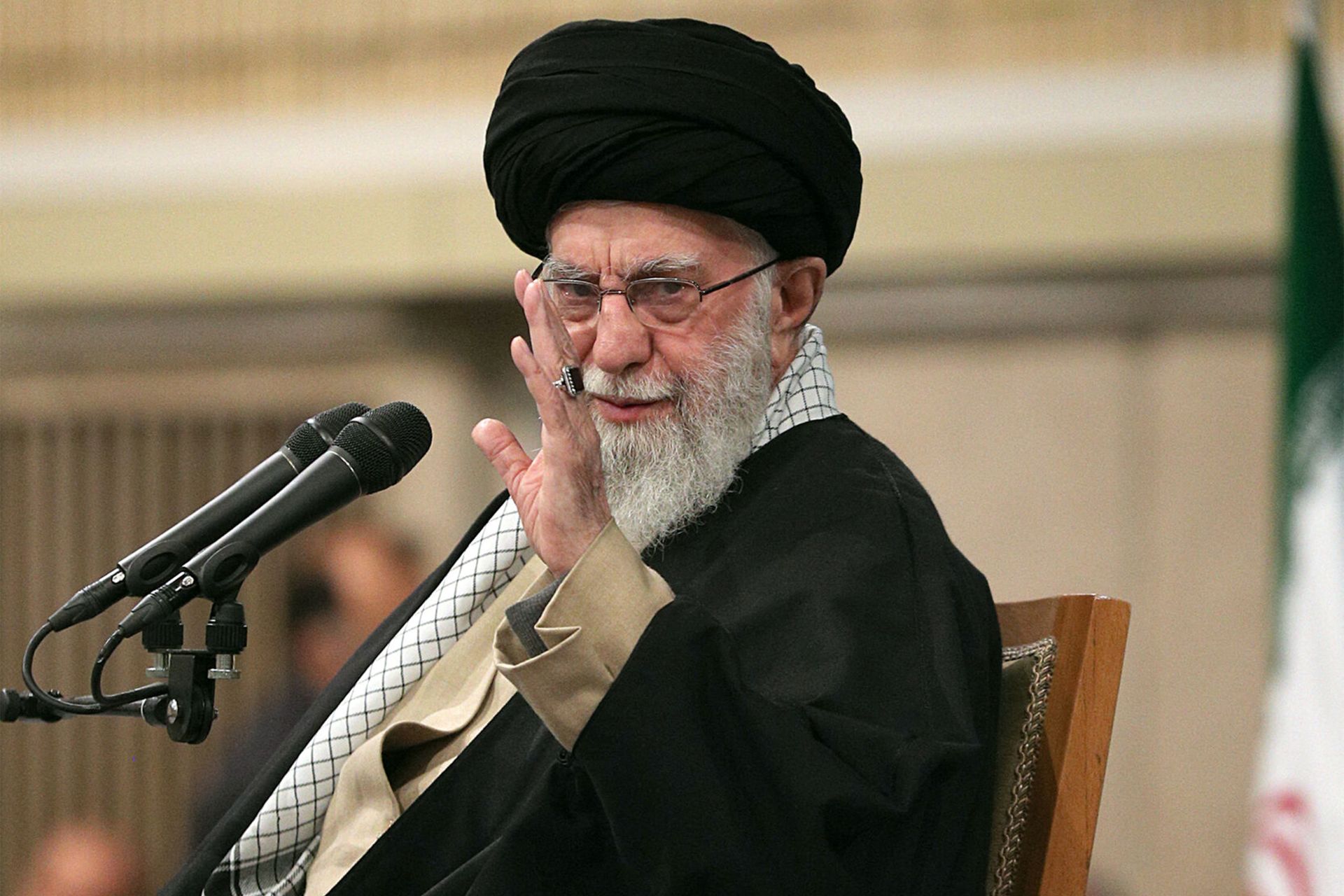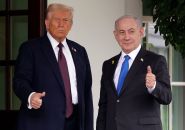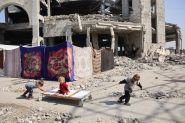- Home
- Middle East
- Khamenei Chooses Three Potential Successors, Fills Senior Military Posts from Bunker

This handout picture released by the office of Iran's Supreme Leader Ayatollah Ali Khamenei on February 17, 2025, shows him greeting attendants during a meeting in Tehran. ©KHAMENEI.IR / AFP
Iran’s Supreme Leader Ali Khamenei has nominated three clerics as potential successors while hiding in a bunker as he faces threats of assassination by Israel in the ongoing war, The New York Times reports.
Khamenei has also begun filling the posts of senior commanders eliminated by Israel, according to the report, which cites three Iranian officials familiar with the plans.
Facing an unprecedented war with Israel and mounting internal threats, Ayatollah Khamenei is quietly fast-tracking the process of choosing his successor. Normally a drawn-out and opaque procedure, succession is now being treated as an urgent national security priority.
According to officials, Khamenei seeks a swift, orderly transition to preserve regime stability and safeguard his legacy amid fears of assassination and escalating conflict.
Succession in Iran is historically shrouded in secrecy, but the war has forced the leadership to act decisively. Notably, Khamenei’s son, Mojtaba – long rumored to be in line for power – is reportedly no longer a contender. Former President Ebrahim Raisi, once another likely successor, died in a 2024 helicopter crash.
Khamenei, who holds ultimate authority over Iran’s military, judiciary and government, has delivered only two recorded video messages since hostilities began. He has since retreated to a bunker, underscoring the severity of Israeli strikes, which have decimated key military and nuclear assets and killed top commanders.
Iranian officials say the war is being fought on two fronts: one involving Israeli airstrikes, the other a wave of covert sabotage by Israeli operatives inside Iran. The leadership has been rocked by what it admits is a massive intelligence failure, allowing attacks that have left hundreds dead and vital infrastructure crippled.
Fearing further infiltration and assassination attempts, Iran has issued strict communication bans, ordered officials underground and enforced widespread surveillance. Meanwhile, nationalist sentiment is surging among Iranians – across political divides – galvanizing public support behind Khamenei and the state.
Though deeply divided in peacetime, Iranians have rallied in unity, offering shelter, aid and solidarity. Still, the threat of a United States entry into the war looms large, raising fears of a devastating regional escalation. Amid the chaos, Khamenei’s focus remains fixed: preserving the Islamic Republic and ensuring the future leadership is locked in place before it’s too late.
Read more



Comments